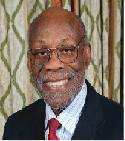BCRC Black Community Leadership Forum for June 16, 2016
The Black Community Leadership Forum will be hosting a working conference of its member organizations and partners on June 16, 2016. The Forum was approved by the BCRC Board of Directors at its Board meeting of December 7 2015. The Conference will be held at 6767 Cotes des Neiges and, very shortly, the agenda and invitations will be sent out to the BCRC’s member organizations, collaborators and supporting agencies.
The purpose of the meeting is to bring together BCRC’s associated organizations, partners and collaborators to revisit and update the Val Morin Agreement of 1992. The meeting will re-affirm the basic principles of cooperation and collaboration. For example, the organizations and its members’ commitment to strengthening the vitality of the community by focusing on the health and vitality of its members. We will also continue to search for new strategies for education and development of the youth and future leadership, as well as strengthening and supporting families and enrichment of the lives of the aging subpopulation. Another topic will involve seeking greater community support for the arts, cultural and educational institutions central to the shaping of our identities, and improving the channels through which we contribute to the creation of a sustainable social and economic environment, a just, equitable and more inclusive and empathetic society.
Within that framework, the intent is to revisit the current evolved strategies of long term community development with a view to encourage the support and cooperation, of the community and between the community and partners. We also hope to expand the cross cultural communication and exchange of ideas and best practices, as well as replace intuitive and untested impulse decision making by a planning process that is information based, dynamic and responsive to change. We will also work to strengthen the existing relationships within our network by exploring more fully the use of communication and information technologies for knowledge transfer within the network of members and collaborators. And, finally, we hope to encourage and promote the development and effective implementation of strategies that benefit the total community. That is to say, we give preference to social economy engagement as opposed to purely individualistic private profit or self-serving activities. The market does the latter better that we can.
The Black Community Forum was originally created in the early nineties by the “Table de Concertation” for the English Speaking Communities of Montreal in response to the expressed desire of those communities “to develop a cooperative planning process” as an engine for its development. Initially, it was intended to be a forum for “informing and involving the wider community in the policy initiatives being discussed at the Table with the three levels of Government.” Protocols for the Forum were created over a six week period by some thirty community based organizations and presented and approved at the Val Morin conference in July, 1992. The Forum worked on an informal basis for five to seven years, at the end of which all of its sub-committees came under the coordinating functions of the BCRC. The BCRC inherited, hosted and provided administrative support to three sub-committees approved by the Table de Concertation: the Heath Committee, the Education/youth sector, and community economic development community committees. Arts and culture was subsumed into the community and Education function. The key agencies given the arts and cultural mandate were West Can Dance, Cultural Agency and the Black Theatre Workshop. Other agencies used cultural camps and programs for arts and culture. These agencies include the QBBE, the BCCQ Community Associations and the Black Studies Center Cultural program for mixed race families. The community economic development initiatives lost its central focus and community significance and became divided up between competing entities: CDN-BCA, YES Montreal, a research oriented collaboration between ICED Concordia and QBBE, the Black Studies Center, and the Government of Quebec Black Entrepreneurship Fund.
The 10th Black Community Leadership Forum retained a sense of strategic unity by holding meetings hosted by the BCRC. The Forum held its tenth meeting, on April 13, 2004, to discuss support for three community projects and to coordinate the collective community’s (French and English) submissions to the City’s Black Task Force, Chaired by Marcil Trenblay. As a result of Community initiatives coordinated by the BCRC, with the support of its Black French partners ( Maison d’Haiti, La Ligue de Noirs, and the Black History Month Table), Marcel Tremblay, Associated Councillor for the Mayor, reported to the Forum and the Committee for the Economic Development of the Black Community that five Boroughs were committed to work to find solutions to “the problems identified by the Montreal Black communities, within the sphere of its jurisdiction, and to employment, dwelling, infrastructures and services; and play a leadership and support role for the proposed initiatives which decision are made by other levels of government.” (Letter dated November 4, 2004, Cabinet du Maire et du Comté Executive, Hotel de Ville). These interventions led to the Yolande James Black Task Force, which reported in 2005.
Since then there has been significant changes in Quebec, Montreal and Canada over the last twenty-five years. There have been changes in demographics, changes in political and social philosophies, institutional changes, economic changes, and infrastructural and environmental changes. Tracking of developments in the Black communities of Montreal has been done and records kept and reported by ICED Concordia, the BSC, and the McGill Consortium for Ethnicity and Strategic Social planning (the Evolution of the Black Community of Montreal), and the City and Provincial Governments Black Task Forces (2004 and 2005).
The Black communities, like all other cultural communities, both minority and non-minority, have had to adapt and react to these changes. In the Black community, new organizations have been created and some have evolved or disappeared. Things have changed since the sixties, partly because of the activism of the sixties and partly because of the dynamism of the interaction of forces and agencies in the environment at large. Now there are a higher proportion of Black youth in colleges and Universities that are Canadian born than was the case 26 years ago. Black education and employment capacity has kept pace with other visible and non-visible minorities. This has been substantiated by the McAndrew Report Commissioned by the QBBE (2004), the McGill Consortium studies, and the reviews of ICED, Concordia. But, while employment income has improved there is still an unacceptably lower probability that a Black person will get a job compared with a white person of equivalent, or even lesser, education status. There is still a perception in the Black community that Blacks are more likely to be the victims of racial profiling. There are real hard questions being asked in the Black communities concerning the effectiveness of the strategies for community development undertaken by agencies in the community, as well as interventions by the various levels of Government. There is a feeling that the breakdown of the united voice that the BCCQ was able to create, in the seventies through to the late nineties, has been replaced by inter-organizational conflict as we return to competing for funds to sustain our presence in the society and the communities.
There is a body of opinion in the Black community that accuses young educated Blacks of abandoning the community; in other words, not giving back. This is frequently countered by the argument that the organizations need to change to reflect social and political changes, new needs and shift to new strategies that are now possible but were not twenty five years ago. Some young, educated Blacks feel that they are in positions where they should be invited to make decisions that impact entire sectors of the society, and that many of the Black community agencies still act as outsiders rather than as Nation influencers. For example, it is clear that the question of the education of the Black child can no longer be addressed simply as a matter of removing racism from the English school system. Because, in Quebec, we have to deal with the larger question of linguistic preferences and the negative impact of the historic struggle between two European settler classes that have become embedded in the struggle for minority rights in Quebec and Canada. This has divided Caribbean cultural groups, which one might expect to be more united around rights and freedoms, along linguistic lines that are foreign to their historical origins and New World experiences and struggles. Also, there are those that believe that they can solve what is a general problem for all peoples in the society, as well as the health of the economy, by setting up a separate school system. Is it possible? And, if so, at what price? What are the real net social and direct, and indirect, economic benefits to the potential participating community members? Can the current models in the community at large be improved to meet our needs with greater networking among us? We hope to hear from experts across communities on this.
It is clear that we need to take a serious look at where we are and where we are going. But, that will require that we do not merely meet and speak with ourselves. There have been initiatives taken by others that must be considered and integrated into our leadership forum. One such situation is the work being done by CQGN in the Education sector as a representative of the constitutional rights of the English-speaking cultural groups and Citizens of Canada in Quebec. Another situation has to do with health, community development, and most specifically art and culture and the recognition of our contributions to the cultural vitality of Quebec and Canada. We will be paying particular attention to the recommendations and implications of new policy initiatives being advanced for our moving forward by two recent community meetings: a community meeting called by the Round Table on December 4, 2015 and the Pan-Black Identities manifesto, approved at a recent Community meeting called by La Ligue des Noirs and accepted as guidelines by the Round Table Meeting of December 4, 2015.
We invite your feedback and comments.
For Full Version of Semaji March 2016 Click Here




